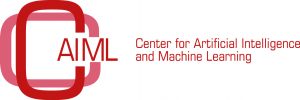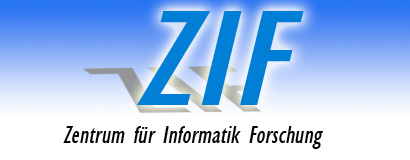Recent Advances in Collaborative and Argumentative Decision-Making
RACAD 2023: A workshop on the latest results and ongoing work on the new challenges.

November 24th 2023
- All day event.
- TU Wien, Faculty of Informatics, Seminarraum FAV 01
-
1040 Vienna, Favoritenstraße 9-11
1st Floor, Room HE 01 08
On This Page
About the Event
Research on supporting decision-making is central to classical and modern Artificial Intelligence. Decision-making with several parties plausibly often involves both collaborative aspects and consensus regarding diverging opinions and conflicts. Two major research strands in these directions are Social Choice Theory and Formal Argumentation. The former is concerned, e.g., with collective decision making such as voting, while the latter aims to provide rational conclusions under inconsistent information.
The aim of this workshop is to bring together researchers from several parts of the diverse fields of Computational Social Choice and Formal Argumentation, in order to discuss recent results and ongoing work on the new challenges.
Program
9:00 - 10:00
Adrian Haret:
Wise Crowds via DeliberationArguments that groups can be wise, i.e., that they can be trusted to find an objectively correct answer, date back to Condorcet and are often probabilistic in nature. However, work in this tradition often operates under somewhat idealized assumptions, e.g., that agents cast ballots independently of each other. Under this assumption agents are precluded from communicating with, or otherwise influencing, each other. In real life, of course, agents often debate and exchange information prior to taking a vote. Do the optimistic conclusions of Condorcet's celebrated result still hold when its main assumptions are relaxed? The talk will focus on current work investigating the truth-tracking abilities of groups when members of such groups communicate prior to voting.
10:00 - 10:30
Coffee Break
10:30 - 11:00
Matthias König:
Treewidth for Argumentation Frameworks with Collective AttackAbstract Argumentation is a key formalism to resolve conflicts in incomplete or inconsistent knowledge bases. Argumentation Frameworks (AFs) and extended versions thereof turned out to be a fruitful approach to reason in a flexible and intuitive setting. The addition of collective attacks, we refer to this class of frameworks as SETAFs, enriches the expressiveness and allows for compacted instantiations from knowledge bases, while maintaining the computational complexity of standard argumentation frameworks. This means, however, that standard reasoning tasks are intractable and worst-case runtimes for known standard algorithms can be exponential. In order to still obtain manageable runtimes, we exploit graph properties of these frameworks. In this paper, we initiate a parameterized complexity analysis of SETAFs in terms of the popular graph parameter treewidth. While treewidth is well studied in the context of AFs with their graph structure, it cannot be directly applied to the (directed) hypergraphs representing SETAFs. We thus introduce two generalizations of treewidth based on different graphs that can be associated with SETAFs, ie, the primal graph and the incidence graph. We show that while some of these notions allow for parameterized tractability results, reasoning remains intractable for other notions, even if we fix the parameter to a small constant.
11:00 - 11:30
Andrei Popescu:
Reasoning in Assumption-based Argumentation using Tree-decompositionsWe address complex reasoning tasks in assumption-based argumentation (ABA) by developing dynamic programming algorithms based on tree-decompositions. As one of the prominent approaches in computational argumentation, our focus is on NP-hard reasoning in ABA. We utilize tree-width, a structural measure describing closeness to trees, for an approach to handle computationally complex tasks in ABA. We contribute to the state of the art by first showing that many reasoning tasks in ABA are fixed-parameter tractable w.r.t. tree-width using Courcelle’s theorem, informally signaling wide applicability of dynamic programming algorithms for ABA. Secondly, we develop such algorithms operating on tree-decompositions of given ABA frameworks. We instantiate the algorithms in the recent D-FLAT framework allowing for declarative and extensible specification of dynamic programming algorithms. In an experimental evaluation on a resulting prototype, we show promise of the approach in particular for complex counting tasks.
11:30 - 12:00
Zeynep G. Saribatur:
Abstraction for Answer Set ProgramsTBA
12:00 - 13:30
Lunch Break
13:30 - 14:00
Iosif Apostolakis:
Abstracting Assumptions in Structured ArgumentationApproaches to computational argumentation provide foundational ways to reason argumentatively within Artificial Intelligence (AI). The underlying formal approaches can oftentimes be classified into structured argumentation and abstract argumentation approaches. The former prescribe rigorous workflows, starting from knowledge bases to finding arguments in favour and against claims under scrutiny, and drawing conclusions. For reasoning argumentatively, abstract argumentation provides formal semantics operating on arguments whose internal structure is hidden and only relations are kept for reasoning, resulting in so-called argumentation frameworks (AFs). In this work we apply a form of existential abstraction on the prominent structured approach of assumption-based argumentation (ABA), leading to an (interactive) way of simplifying argumentation scenarios towards supporting explainability. Existential abstraction was shown to be promising in many areas of AI, including a recent work on AFs. We lift this approach to the structured level---which is, as we show, both not direct from AFs and can benefit from utilization of the internal structure of arguments. Among our contributions, we introduce existential abstraction on ABA via clustering assumptions, develop semantics on clustered ABA frameworks for reasoning on such clusterings, show differences to the level of AFs, and provide a prototype of an interactive automated tool that obtains faithful clusterings, i.e., abstractions that do not lead to any spurious reasoning.
14:00 - 14:30
Oliviero Nardi:
Combining Voting and Abstract Argumentation to Understand Online DiscussionsOnline discussion platforms are a vital part of the public discourse in a deliberative democracy. However, how to interpret the outcomes of the discussions on these platforms is often unclear. In this paper, we propose a novel and explainable method for selecting a set of most representative, consistent points of view by combining methods from computational social choice and abstract argumentation. Specifically, we model online discussions as abstract argumentation frameworks combined with information regarding which arguments voters approve of. Based on ideas from approval-based multiwinner voting, we introduce several voting rules for selecting a set of preferred extensions that represents voters' points of view. We compare the proposed methods across several dimensions, theoretically and in numerical simulations, and give clear suggestions on which methods to use depending on the specific situation. Joint work with Michael Bernreiter, Jan Maly and Stefan Woltran.
14:30
Closing
Organizers & Supporters
This workshop is organized by TU Wien and TU Graz, and supported by CAIML, FWF Project T-1315, and ZIF.
Organizing Team
- Juliane Auerböck
- Zeynep G. Saribatur
- Kaan Unalan
- Johannes P. Wallner
- Stefan Woltran





